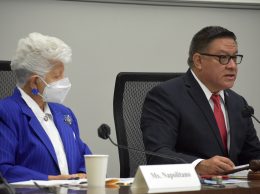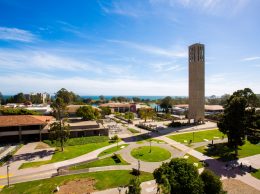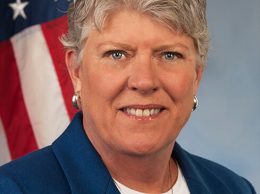Assembly resolution calls for national tax on fossil fuels
A California Assembly resolution calling for a national tax on fossil fuels is headed to the desk of Gov. Jerry Brown.
The bill, AJR 43, calls on Congress to institute a federal tax on carbon-based fossil fuels in order to reduce fossil fuel usage and stave off the effects of climate change.
Assembly member Das Williams, D-Santa Barbara, introduced the bill. Williams is running for 1st District Santa Barbara County Supervisor.
The bill says a national tax like the one proposed by the bill could reduce carbon emissions by 33 percent, add 2.1 million jobs to the economy and save families $288 per month. The California Senate approved the bill Aug. 23 and the Assembly passed it on June 30.
“A national, revenue-neutral carbon tax starting at a relatively low rate and increasing steadily over future years is a market-based solution that would minimally disrupt the economy while sending a clear and predictable price signal to businesses to develop and use non-carbon-based energy resources,” the resolution states.
The bill says a tax would help achieve the goal of reducing carbon emissions in the U.S. to 80 percent below 1990 levels by 2050.
“A national carbon tax can be implemented quickly and efficiently, and respond to the urgency of the climate crisis,” the resolution states. “The federal government already has in place mechanisms, such as the Internal Revenue Service, needed to implement and enforce the tax and already collects taxes from fossil fuel producers and importer.”
The bill does not propose a tax similar to California’s cap and trade program, which the Legislature approved in 2006, was signed by Gov. Arnold Schwarzenegger and took effect in 2012. The program limits the amount of carbon credits available on a state-run marketplace and forces companies that produce more than 25,000 tons of carbon dioxide a year to buy credits from companies that produce less carbon dioxide.
In 2015, the cap and trade system nearly doubled in size as transportation fuels were also included.
On Aug. 23, the Legislature amended the 2006 bill to require the state to reduce carbon emissions by 40 percent from 1990 levels by 2030. Previously, the law only required the state to reach 1990 levels of emissions by 2020.
• Contact Philip Joens at pjoens@pacbiztimes.com.











